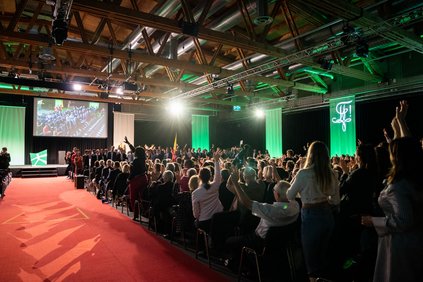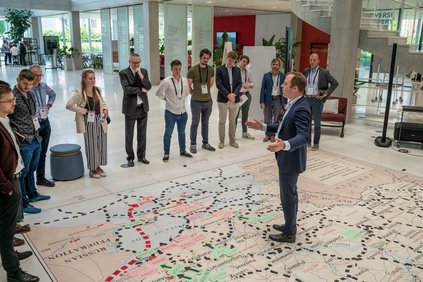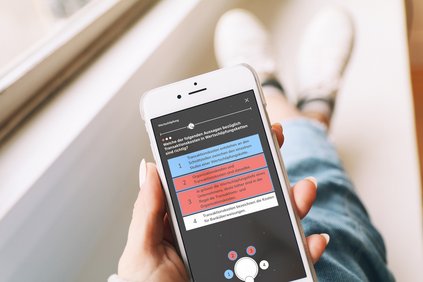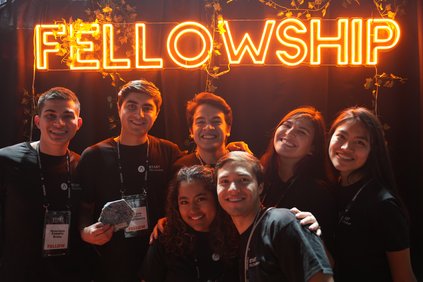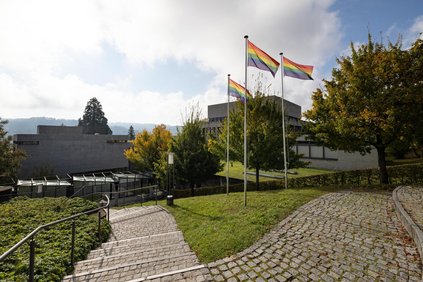Campus - 16.09.2022 - 00:00
HSG supports new students through unique coaching programme
The HSG supports some of its new students with personal coaches: Coaching enables young men and women to work on their characters – and hone their view of other social realities.
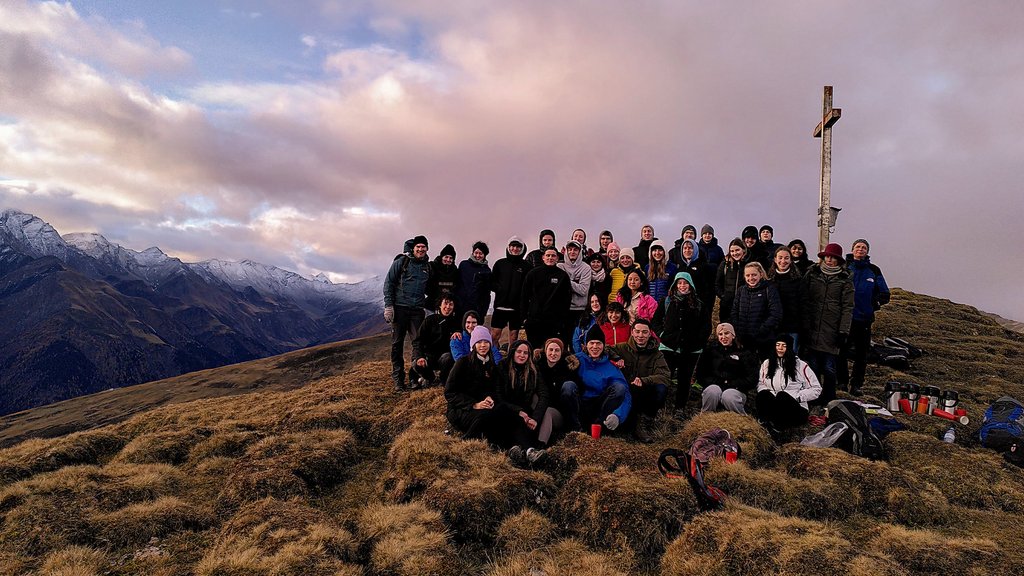
16 September 2022. The HSG assessment year has a reputation which transcends the University of St.Gallen: This intensive period of study is shaped by comprehensive examinations, seminar and group work. More than 1800 first semester students are joining this September. “Not only is the start of a degree course a professional challenge for young people, it's also a personal challenge,” says the social psychologist Nilima Chowdhury. She heads the HSG Coaching Programme which sees around 60 new students per year through their personal development.
“The programme gives students various skills to take away with them. These help them, for example, to deal with the demands of the Assessment Year,” says Chowdhury. The coaching programme basically involves a holistic development of character. “This year is not a career course. The most important thing that the students learn in the programme is to hone their critical self-reflection.” In addition to this, the students are expected to strengthen their personal responsibility, social skills and leadership abilities.
Supported by professional coaches
All students are allocated a personal coach at the start of the programme. For this, the HSG is able to rely on a plentiful pool of professional coaches and management staff, as well as subject experts from the world of work and academia. These coaches are committed to the personal development of the students on a voluntary basis. During the course of the year, the students meet their allocated coaches at least six times for personal discussions and give them feedback on their development.
The official start of the coaching is a three-day kick-off seminar in the Grisons mountains. “This introduces the coachees to the programme. But it is also about students getting to know one another,” says Chowdhury. The 60 young people spend a lot of intense time with one another during this year: The compulsory content of the programme includes a three-day dynamic group coaching session in small groups as well as an attentiveness seminar.
Students who have concluded the coaching programme in the previous year valued the positive atmosphere in the group. “I experienced that coaching programme as a location in which all students supported one another and shared their experiences,” says the 21-year-old Gian-Luca Mäder who is in his third semester of International Affairs. From the learning on offer, he highlights the team seminar. “This allowed me to take away specific team skills for a big piece of group work in the Assessment Year.” Daniele Peressini (21), business administration student in his third semester says: “As a more introverted type, I benefited a lot from the two seminars on body language and public appearance.” For example, he said he received individual feedback from coaches on his presentation techniques. “I was able to directly apply the findings from this to the degree course.”
An international study shows the effectiveness of the programme
Petra Kipfelsberger, HSG Assistant Professor for Leadership and Organizational Behaviour, researched the effectiveness of the coaching programme in international research cooperation in a study. She and her co-researchers questioned 170 students in an experimental-type setting; 58 of these attended the coaching programme and 112 formed the control group. The researchers were interested in whether authenticity develops naturally in young adults and, if so, to what extent it can be externally promoted with the use of targeted interventions. The results show that the coaching programme among those questioned supported an authentic lifestyle in which the inner and outer image of a person coincided as much as possible. The study also showed that in both studied groups, the acceptance of external influences reduced, whereby the effect in the coached group was somewhat stronger.
In addition to the personal development, HSG psychologist Chowdhury highlights a further important goal of the programme. “It's also about honing the students' view of other social realities: For example, how factors such as gender, immigrant background or socio-economic status shape our perspectives and behaviour.”
Students interested in participating in a coaching programme can apply here. The application deadline is 2 October.
More articles from the same category
This could also be of interest to you
Discover our special topics

